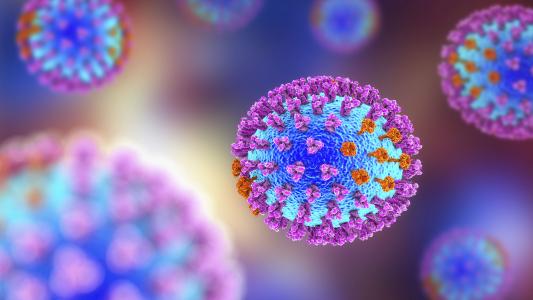In December, the FDA authorized the first coronavirus vaccine, and since then, the same question has been top of mind for millions of Americans: When can I get the COVID-19 vaccine?
With only so many doses to go around, we’ve had to prioritize distribution — healthcare workers and high-risk people first; younger, healthier people later. But each state also has its own, often-shifting rules about who qualifies for the vaccine, which makes it complicated to find out who’s eligible.
Even people who definitely qualify for a COVID-19 vaccine right now, however, are having trouble making an appointment to get the shot.
In an attempt to address this issue, volunteers across the nation are creating online tools that rely on crowdsourced data to help people make COVID-19 vaccine appointments — stepping up where their state governments are falling short.
COVID-19 Vaccine Appointments
One of the reasons it’s been so difficult for people to schedule COVID-19 vaccine appointments is that the rollout has been incredibly complex and decentralized.
Instead of having a single entity in charge of distribution, the U.S. has left the process up to each state. In turn, states are relying on multiple nonprofits, pharmacies, and healthcare systems to schedule appointments to distribute whatever vaccines they receive — but many states don’t even have a reliable list of who those providers are.
That’s left people scrambling to keep tabs on which local distributors have vaccines available at any given moment.
Some states have created online tools designed to make all this information available in one place, but those are proving to be woefully subpar.
In Florida, a buggy website has refused to let people who do qualify for the vaccine schedule COVID-19 vaccine appointments, while a hotline in Colorado has regularly left people on hold for more than an hour.
“(T)hey suggest that all you have to do is toodle on over to this website and you’ll be fine, or call this number and you’ll be fine,” Mark Brown, who gave up on trying to reach a representative on Colorado’s appointment hotline, told Colorado Public Radio.
“I don’t think they’re scaled up enough to handle the volume yet,” he continued, “and I wish they would just say that.”
When Can I Get the COVID-19 Vaccine?
Some of the people frustrated by the current systems have taken it upon themselves to try to make it easier to schedule COVID-19 vaccine appointments.
Carri Craver, a digital product designer in Texas, told MIT Technology Review she spent eight hours one evening in early January creating Covid19 Vaccine TX.
Visitors to that website will find a list of about 1,400 vaccine distributors in the state, along with up-to-date details on the availability of doses and appointments.
Craver said she’s since spent about 40 hours a week maintaining the site, and she’s currently working with Austin-based tech company Oracle to replicate it for 20 other states.
We hope we don’t have to exist for much longer.
Dylan Alban
In Illinois, Chicago-based physician Halleh Akbarnia has created a crowdsourced Google doc listing places in her state that are currently scheduling COVID-19 vaccine appointments — anyone can submit new information for inclusion in that document, which is updated every five minutes.
People in New York, meanwhile, can visit NYC Vaccine List to schedule an appointment to get a COVID-19 vaccine.
Software engineer Dan Benamy created that site after having trouble scheduling appointments for his grandparents on the state’s official website. It updates every few minutes with info automatically pulled from 45 official vaccination websites.
A (Hopefully) Temporary Fix
Other volunteer-run tools to help people make COVID-19 vaccine appointments are now up and running in about a dozen states, including California, New Jersey, and Pennsylvania.
These tools are helping fill an important need as the U.S. struggles to get its population vaccinated — but the people making and maintaining the sites are hopeful that that need will soon disappear.
“We were just frustrated and saw this as a problem nobody was digging in on,” Dylan Alban, who’s helping develop crowdsourced tools for Florida and Colorado, told the Wall Street Journal. “We hope we don’t have to exist for much longer.”
We’d love to hear from you! If you have a comment about this article or if you have a tip for a future Freethink story, please email us at tips@freethink.com.
